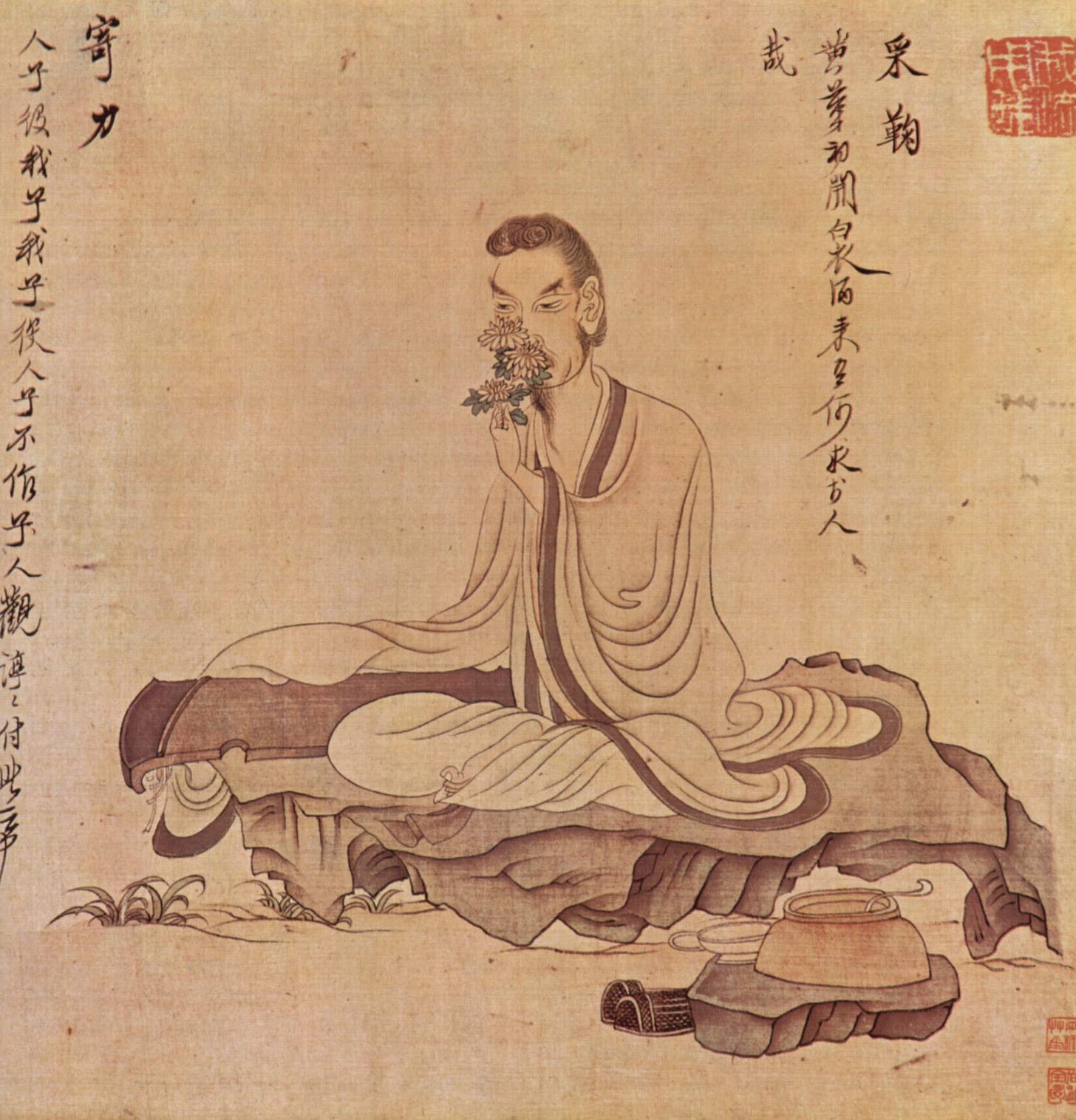Cabin in the Bamboo Wang Wei Solo in this shady bamboo clearing, I strum and slowly trill my melody. I'm in the wilderness; the world's not hearing. The moon arrives to keep me company. 王维 竹里馆 独坐幽篁里,弹琴复长啸。 深林人不知,明月来相照。
No one is exactly sure what trilling sounded like in the Tang Dynasty. But we think it was a high-pitched, extended note - maybe a whistle, maybe sung. (Edit: Hinton suggests that trilling was a form of Daoist meditation. This seems entirely possible, but: (1) Wang was (certainly later) a Buddhist. This doesn’t mean he necessarily rejected Daoist practices, but it means he’s less likely to be deliberately using Daoist references as an important part of his poetry. That said, there are some references to Daoist gods scattered through this collection. (2) In addition to the Daoist sense, the word for trill was certainly used to refer to a non-religious singing technique. (3) This particular poem doesn’t seem much more Daoist in its themes than any of the others in the collection. This has to go down as another of the mysteries that we don’t yet understand!)
The instrument Wang was playing was a qin, which was kind of a guitar without the sound box.
Pei Di's poem at the same site (prose translation): I come and go from this cabin in the bamboo;/ every day I get to know the path better./ Only the wild birds come in and out of here;/ in the dim depths, there are no worldly folk.




Nicely translated. I wonder how front-of-mind the Daoist associations would’ve been for Wang Wei, as opposed to the “thing Tao Yuanming and the Seven Sages and friends did” associations, but that’s just a guess.
I often contenplate a world without recorded music. I’d finally have to learn me that banjo.